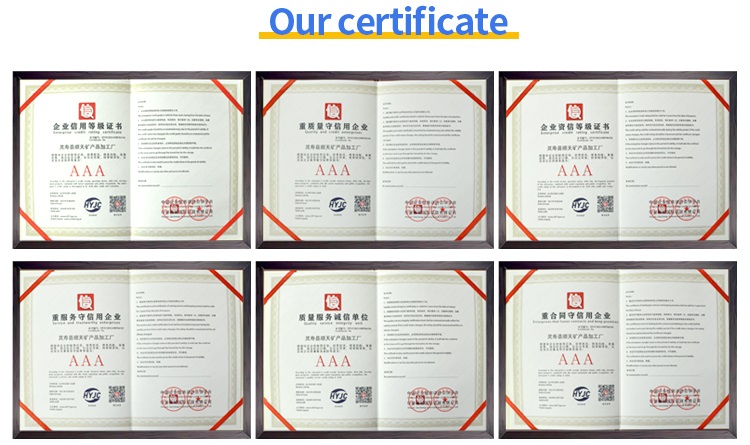
Bentonite Clay Solutions for Efficient Well Drilling and Construction Applications
Bentonite Clay in Well Drilling A Comprehensive Overview
Bentonite clay has emerged as a vital component in the well drilling industry, primarily due to its unique properties and versatile applications. As an essential material, it plays a crucial role in various stages of well drilling, from the initial drilling of boreholes to the final stages of well completion. This article will explore the characteristics, benefits, and applications of bentonite clay in well drilling, alongside insights into manufacturing processes and factory standards.
Understanding Bentonite Clay
Bentonite is a type of clay formed from volcanic ash that has undergone significant geological changes. Its key component, montmorillonite, gives bentonite its remarkable properties, including high plasticity, swelling ability, and water retention. This natural clay is classified primarily into sodium bentonite and calcium bentonite. Sodium bentonite is particularly favored for drilling applications due to its expansive properties when mixed with water, forming a viscous slurry that is crucial for effective drilling.
Role of Bentonite Clay in Well Drilling
1. Mud Properties and Circulation In well drilling, bentonite is primarily used to create drilling mud, which serves several functions. The mud provides essential lubrication to drill bits, helps to carry cuttings to the surface, and stabilizes the wellbore by preventing collapse. The thixotropic properties of bentonite enable the mud to remain fluid when agitated but to thicken and hold the borehole walls when at rest, further enhancing stability.
2. Cooling and Lubrication During the drilling process, significant heat is generated due to friction between the drill bit and the rock formations. Bentonite-based drilling mud is highly effective in dissipating this heat, ensuring that both the drill bit and the surrounding geological formations remain within optimal temperature ranges, thus prolonging equipment life and enhancing drilling efficiency.
3. Sealing and Protection Bentonite has excellent sealing properties, which is crucial in preventing the influx of water or other fluids into the drilling zone. This ability is particularly important in regions with fluctuating groundwater levels or unstable geological formations. Proper sealing minimizes the risk of blowouts and enhances the overall safety of the drilling operation.
4. Environmental Considerations Bentonite clay is non-toxic and environmentally friendly, making it a preferred choice in drilling operations. Its natural composition ensures that it does not contaminate groundwater or surrounding soil, adhering to modern environmental standards and regulations.
bentonite clay for well drilling factory

Manufacturing Processes and Quality Control
The production of bentonite clay for drilling applications involves several stages, from extraction to processing and packaging. The following steps outline the typical manufacturing processes
1. Extraction High-quality bentonite is sourced from natural deposits, often found in sedimentary basins. The extraction process must ensure minimal contamination from other materials and maintain the purity of the clay.
2. Processing Once extracted, bentonite is crushed, dried, and ground to achieve the desired particle size. This processing stage may involve mineralogical analysis to ensure that the clay meets specific quality standards required for various drilling applications.
3. Quality Control Rigorous quality control measures are essential to maintain the consistency and effectiveness of bentonite clay. Manufacturers often conduct physical and chemical tests to assess properties such as plasticity, swelling capacity, and viscosity. This quality assurance guarantees that the bentonite meets the needs of different drilling projects and complies with industry standards.
Future Outlook
The demand for bentonite clay in well drilling is expected to rise significantly as global water resources become scarcer and the need for sustainable resource extraction grows. Innovations in drilling technology and techniques will further enhance the applications of bentonite, making it an indispensable material in the industry.
In conclusion, bentonite clay is a cornerstone of well drilling operations, offering unparalleled benefits in terms of stability, lubrication, and environmental sustainability. As the industry continues to evolve, the importance of high-quality bentonite from reputable factories will remain paramount. Companies engaged in the extraction and manufacturing of bentonite will play a pivotal role in shaping the future of well drilling, ensuring that operations are efficient, safe, and environmentally responsible. The synergy between advancements in technology and the unique properties of bentonite clay will undoubtedly pave the way for innovative drilling solutions to meet the challenges ahead.
Share
-
Natural Premium Bentonite Cat Litter - Superior ClumpingNewsJul.31,2025
-
Premium Resin Coated Sand - High Heat Resistance CastingNewsJul.31,2025
-
High Quality Silicon Carbide Grit for Abrasive ApplicationsNewsJul.30,2025
-
High-Quality Ceramsite for Plants & Gardening | Lightweight PebblesNewsJul.29,2025
-
Premium Burgundy Glass Marbles for Vases & Shooter GamesNewsJul.29,2025
-
High Purity Quartz Sand for Industrial and Ground ApplicationsNewsJul.29,2025






